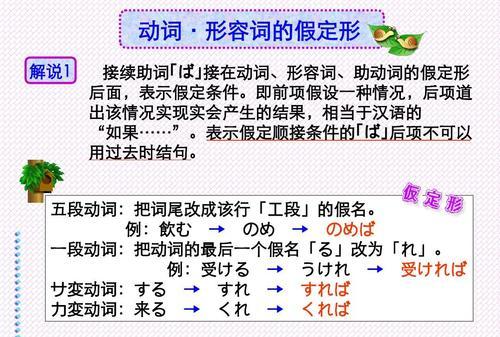在英语中,假定形加形容词需要注意的用法包括:假定形后面跟形容词时,需要用“be”动词连接;表达对过去事情的假设时,需要用“have been”连接假定形和形容词;在假定形中加形容词时,需要做到主谓一致。这些都是英语中常见的语法结构。

首先,当假定形后面跟着形容词时,我们需要用“be”动词来连接它们。例如:
- If I were rich, I would be happy.(如果我有钱,我会很快乐。)
- If it rained tomorrow, the streets would be wet.(如果明天下雨,街道会湿漉漉的。)
其次,当我们想要表达对过去事情的假设时,我们需要用“have been”来连接假定形和形容词。例如:
- If I had studied harder, I would have been smarter.(如果我学习更努力,我会更聪明。)
- If you had come earlier, you would have been able to see the sunset.(如果你早点来,你就能看到日落了。)
最后,需要注意的一点是,在假定形中加形容词时,我们需要做到主谓一致。也就是说,如果主语是单数,那么我们需要用单数形式的be动词;如果是复数,则需要用复数形式的be动词。例如:
- If he were taller, he would be able to reach the top shelf.(如果他更高一点,他就能够够到顶层架子了。)
- If they were more careful, they wouldn't make so many mistakes.(如果他们更小心,就不会犯那么多错误了。)

